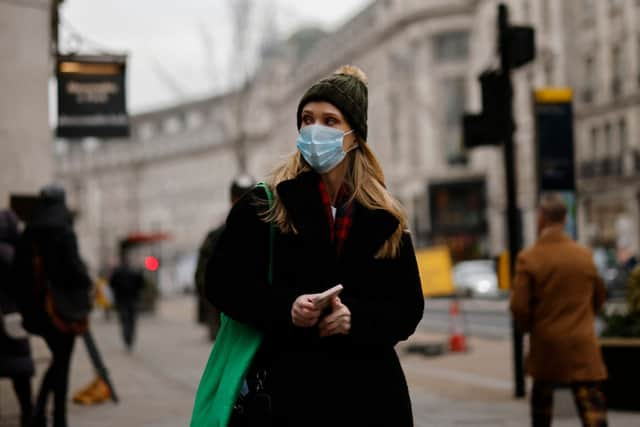Do I still have to self isolate? New Covid rules on isolation if you test positive in England - latest changes
This article contains affiliate links. We may earn a small commission on items purchased through this article, but that does not affect our editorial judgement.
and live on Freeview channel 276
All remaining coronavirus laws in England will come to an on Thursday after the Prime Minister set out his plan for ‘living with Covid’.
Boris Johnson presented his strategy for tackling Covid to MPs on Monday (21 February), telling the Commons it is time to “move from government restrictions to personal responsibility”.


Advertisement
Hide AdAdvertisement
Hide AdHe said “the sun is shining but we’re keeping our umbrella” in the fight against coronavirus, but warned the pandemic is “not over” yet.
If you live in England, these are all the latest changes to self-isolation rules you need to know.
Do I still have to self-isolate?
No. From Thursday (24 February), it is no longer be a legal requirement to self-isolate after testing positive for Covid in England.
Anyone who gets a positive test result is still being advised to stay at home for at least five days until April, but this will no longer be enforced by law.
Advertisement
Hide AdAdvertisement
Hide AdThis advice applies to both adults and children, as well as those who are identified as a close contact of someone with coronavirus.
From 1 April onwards, people are encouraged to “exercise personal responsibility”.
Routine contact tracing also ends from Thursday, along with the £500 self-isolation support payments and the legal obligation for people to tell their employers about their requirement to isolate.
Changes to statutory sick pay and employment support allowance designed to help people through the coronavirus pandemic will end on 24 March.
Advertisement
Hide AdAdvertisement
Hide AdAnnouncing the changes this week, Mr Johnson said: “From this Thursday, it will no longer be law to self-isolate if you test positive, and so we will also end the provision of self-isolation support payments, although Statutory Sick Pay can still be claimed for a further month.
“If you’re a fully vaccinated close contact or under 18 you will no longer be asked to test daily for seven days.
“And if you are close contact who is not fully vaccinated you will no longer be required to self-isolate.
“Until 1 April, we will still advise you to stay at home if you test positive.
Advertisement
Hide AdAdvertisement
Hide Ad“But after that, we will encourage people with Covid symptoms to exercise personal responsibility, just as we encourage people who may have flu to be considerate towards others.”
Mr Johnson added that there will likely be another Covid variant that will “cause us trouble” in the future, but it is thanks to high levels of immunity that restrictions are able to be eased.
He added: “I don’t want you to think that there’s some division between the gung-ho politicians and the cautious, anxious scientists, much as it may suit everybody to say so.
“We have a very clear view of this. This has not gone away.
“We’re able to make these changes now because of the vaccines and the high level of immunity and all the other considerations about Omicron that you’ve seen.
Advertisement
Hide AdAdvertisement
Hide Ad“But we have to face the fact that there could be, likely will be, another variant that will cause us trouble.
“But I believe that thanks to a lot of the stuff that we’ve done, particularly investment in vaccines and vaccine technology and therapeutics, we’ll be in a far better position to tackle that new variant when it comes.”
A message from the editor:
Thank you for reading. NationalWorld is a new national news brand, produced by a team of journalists, editors, video producers and designers who live and work across the UK. Find out more about who’s who in the team, and our editorial values. We want to start a community among our readers, so please follow us on Facebook, Twitter and Instagram, and keep the conversation going. You can also sign up to our newsletters and get a curated selection of our best reads to your inbox every day.
Comment Guidelines
National World encourages reader discussion on our stories. User feedback, insights and back-and-forth exchanges add a rich layer of context to reporting. Please review our Community Guidelines before commenting.
